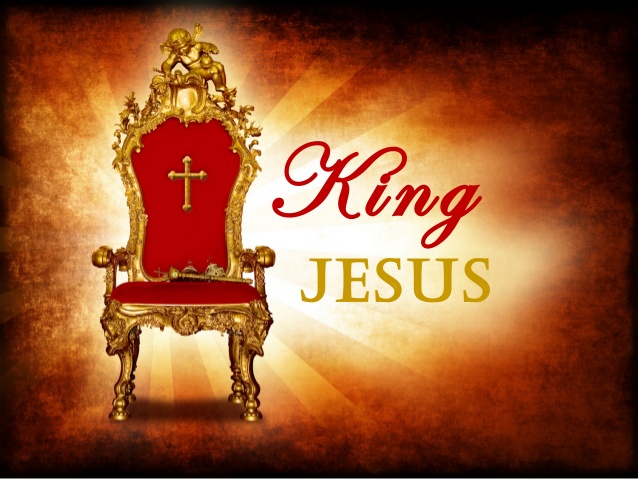 Many people today do not believe in a millennial kingdom. They believe Jesus will return at a distant future time, judge humanity, and bring in the eternal state.
Many people today do not believe in a millennial kingdom. They believe Jesus will return at a distant future time, judge humanity, and bring in the eternal state.
We refer to those to teach such a view as amillennialists because they do not believe in a future kingdom in which Jesus will rule over the world seated upon the throne of David. They believe God rejected Israel after His people spurned and crucified His Son. As a result, the church now fulfills the kingdom promises made to Israel, but in a spiritual and allegorical sense rather than in a literal way.
While I strongly disagree with these teachers regarding God’s rejection of Israel, there is something I believe they overlook. They fail to consider the Old Testament promises made to the Messiah that are separate from the ones God made to Israel.
In order to be an amillennialist, you must negate Old Testament prophecies concerning Jesus as well as God’s promises of a future kingdom for Israel.
The Promise of The Father
In Psalm 2, The Father promises the Son all the nations of the world as His “heritage.” Beginning in verse 7 we read, “The Lord said to me, ‘You are my Son; today I have begotten you. Ask of me, and I will make the nations your heritage, and the ends of the earth your possession.’” The Father makes this pledge to the Son independent of His everlasting covenant with Israel.
The rest of Psalm 2 makes it clear that this is not a spiritual reign, but a physical reign over actual nations with kings. Verse 9 states, “You shall break them with a rod of iron and dash them in pieces like a potter’s vessel.” This does not sound like His headship of the church to me. The Psalmist is warning the kings of the earth to “serve the Lord with fear” (vv. 10-11). The Father promised His Son an actual government with authority over all the rulers of the earth.
If you deny the reality of the millennium, how do you deal with God the Father breaking His promise to His Son that He would receive such a kingdom?
If you deny the reality of the millennium, how do you deal with God the Father breaking His promise to His Son that He would receive such a kingdom? I do not think you can do that.
Does this not also explain Satan tempting Jesus with the “kingdoms of the world” in Matthew 4:8-11? He offered Jesus a shortcut to what the Father had already promised Him. Why tempt Jesus in this way if He had no aspirations for or promises about ruling over the nations of the world at a future time?
A Child Who Would Rule
Almost every believer is familiar with Isaiah 9:6-7. We hear these verses read every year around the time of Christmas and if we listen to Handel’s “Messiah,” we hear the words put to glorious music.
We celebrate the fulfillment of the first two lines of the prophecy, “For to us a child is born, to us a son is given.” We regard Jesus’ birth in Bethlehem as the exact fulfillment of these words.
Without the millennium, several of the promises regarding the Messiah in Isaiah 9:6-7 are now null and void.
Most people, however, give little thought to how Jesus might fulfill the promise that someday this “child” would be the head of an actual “government” sitting upon ‘the throne of David.” The rest of the passage speaks to Jesus being King over a real, physical kingdom. If Jesus literally fulfilled the first two lines of this prophecy, why do some believe He will not literally fulfill the rest of the passage? Where do we draw the line between taking the words of the prophet literally and figuratively in in this passage?
Without the millennium, several of the promises regarding the Messiah in Isaiah 9:6-7 are now null and void. Remember, this is a prophecy regarding the Messiah, not Israel. If we deny a future kingdom to Israel, what do we do Isaiah’s prophecy that the Christ would someday sit on the throne of David as the head of an actual government?
Jesus as Judge
In ancient Israel, the king acted as both ruler and the ultimate judge of the land presiding over the most difficult cases. Do you remember King Solomon deciding the case between the two women who both claimed the living baby? This is an example of how the ancient kings took on the role of a magistrate.
Keeping this in mind, here is what Isaiah also prophesied regarding Jesus, “And his delight shall be in the fear of the Lord. He shall not judge by what his eyes see, or decide disputes by what his ears hear, but with righteousness he shall judge the poor, and decide with equity for the meek of the earth, and he shall strike the earth with the rod of his mouth, and with the breath of his lips he shall kill the wicked” (Isa. 11:3-4). The prophet gives us a clear picture of Jesus acting as a judge over all the earth.
This is not a picture of a future judgment; this is the Christ fulfilling His role as ruler over all the earth doing what such a king would do. Like the kings of old, He is administering justice on behalf of his subjects.
This passage does not fit with Jesus’ headship over the church. It also does not match with anything He has done since His resurrection. These verses from Isaiah 11 look forward to a time when Jesus will be the Supreme Ruler over all the earth administering justice and righteousness for all people.
King Over All the Earth
Zechariah 14:9 says this, “And the Lord will be king over all the earth. On that day the Lord will be one and his name one.” If we look at the context of Zechariah 14, it’s clear that this reference is to a physical kingdom with Jesus reigning over the nations of the world from Jerusalem.
While the context assumes a restored and repentant Israel, Zechariah directs these words to the Messiah; He alone is the subject of the prophecy. He will someday be king over all the earth and hold all the nations accountable to Him, just as we see later in the chapter (vv. 16-19).
Why do I believe in a literal millennium? Why am I a premillennialist who believes that Jesus will return after the tribulation to set up His rule for a thousand years?
To deny a literal millennium, one has to say that the Father will break His promise to the Son and that the prophecies of Jesus ruling over the nations of the earth are no longer valid.
First of all, I believe that all the Old Testament promises made to Israel remain intact. God has not rejected His people (Rom. 11:1) with whom He made an everlasting covenant (Psalm 105:8-11). But, that is the subject for another article.
Secondly, God the Father, through the prophets, promised that His Son would reign over the kingdoms of this world. Psalm 2 goes even further by stating that the Father would someday give the nations of the world to His Son as His “heritage.”
To deny a literal millennium, one has to say that the Father will break His promise to the Son and that the prophecies of Jesus ruling over the nations of the earth are no longer valid.
God has to break both His promises to Israel and to Jesus if there is no future kingdom over which Jesus will rule.
God will keep His promises to His Son as well as to Israel; there will be a millennium!





















 Many people today do not believe in a millennial kingdom. They believe Jesus will return at a distant future time, judge humanity, and bring in the eternal state.
Many people today do not believe in a millennial kingdom. They believe Jesus will return at a distant future time, judge humanity, and bring in the eternal state.